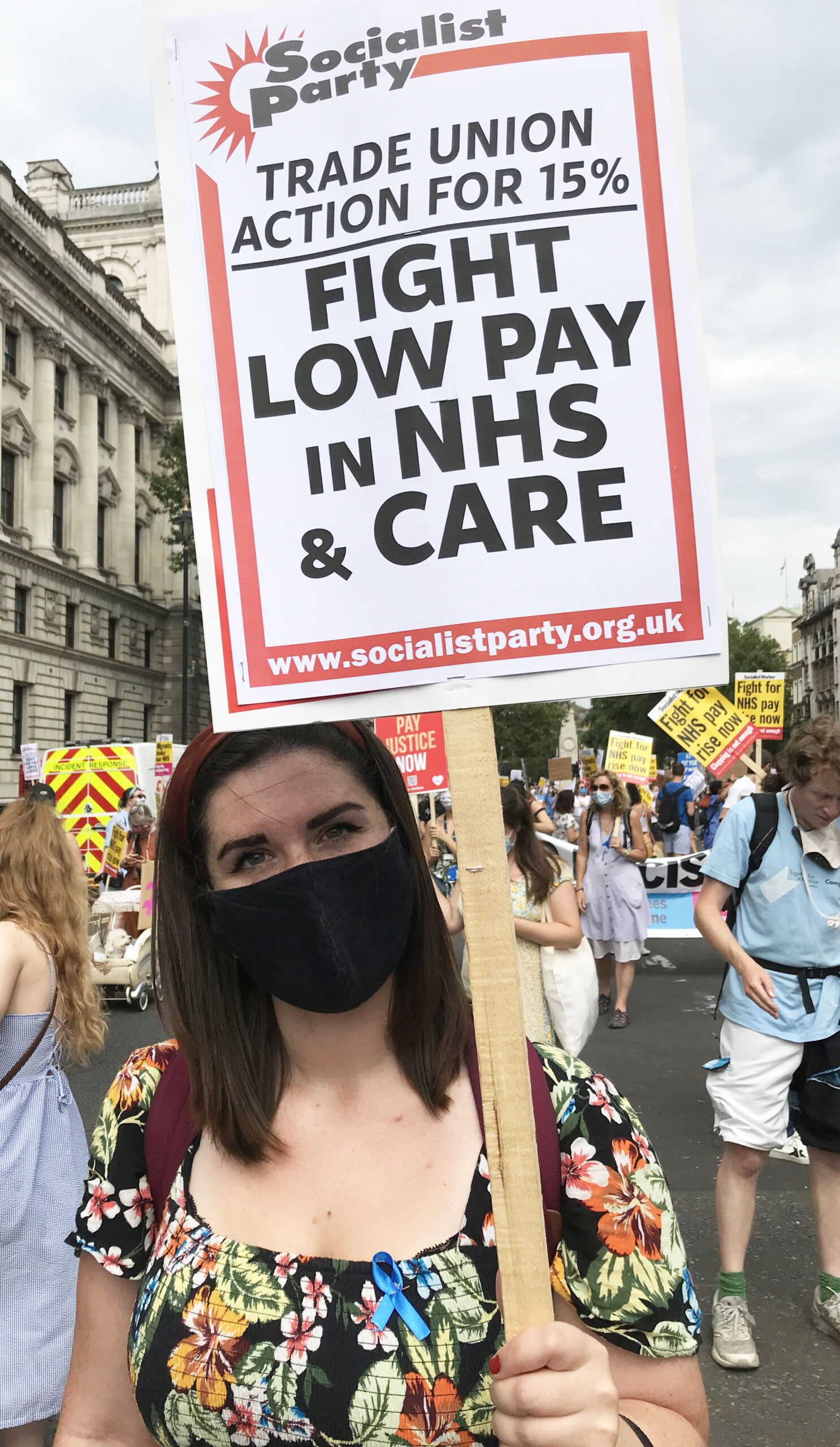John Malcolm, Unison Health Service Group Executive member (personal capacity)
NHS staff have faced two years of sacrifice during the pandemic and are exhausted. We have worked above and beyond expectations to maintain services and deal with increased workload. Up to 400 staff per week are leaving the NHS. Trusts face severe staff shortages, sickness levels and burnout.
Issues that were there before the pandemic have only been made worse. Some trusts are offering golden handshakes of up to £3,500 for nursing staff. This will only see staff moving from trust to trust, rather than addressing the long-term staff shortages, and is no substitute for a decent, lasting pay rise.
NHS unions representing workers covered by the ‘agenda for change’ agreement, have submitted their evidence to the pay review body (PRB), which considers recommendations on NHS pay. But last week the Tory government recommended a 3% pay offer to the PRB. This falls far short of inflation nearing 8%, and also fails to address the cost of living squeeze and relative loss of pay since the start of austerity in 2010.
The supposedly ‘independent’ PRB routinely follows the government recommendations. NHS unions need to be building the campaign on pay now, and not waiting until the PRB figure is announced.
The unions are effectively continuing the pay campaign from last year, when there were a number of consultative ballots or indicative ballots for industrial action over pay. Unfortunately, despite a high percentage voting in favour of action, across all of the unions that balloted, none of the union leadership bodies moved to a formal ballot.
Socialist Party members and other left-wing activists on Unison’s service group executive argued consistently to move to a formal strike ballot. Around 29% voted in the Unison consultative and indicative ballots. This would fall short of the 50% required by the Tories’ anti-union laws in a formal ballot. But the turnout would have been higher had the union’s leaders built a decent campaign and given a fighting lead.
This year, the NHS unions have agreed to a joint campaign. Although, at this stage, a percentage claim or flat rate has not been agreed, it is positive that the unions are taking a united approach. Last year, each union was campaigning for a different percentage increase or flat rate, causing some confusion among NHS workers, and the view that some unions were trying to outdo each other with varying claims. Hopefully this unity can be maintained.
Health unions must prepare now with a united campaign for the 2022 pay offer and an above-inflation pay claim, demanding it is paid on 1 April. If there is no sign of a decent pay rise from the government, then NHS unions should start to ballot for action.







